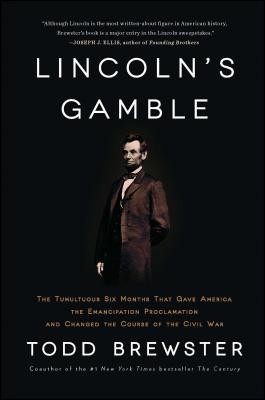
- We will send in 10–14 business days.
- Author: Todd Brewster
- Publisher: Scribner Book Company
- Year: 2015
- Pages: 368
- ISBN-10: 1451693893
- ISBN-13: 9781451693898
- Format: 13.7 x 21.1 x 2.3 cm, softcover
- Language: English
- SAVE -10% with code: EXTRA
Reviews
Description
"A masterful psychological portrait" (George Stephanopoulos) of the most critical six months in Abraham Lincoln's presidency, when he wrote the Emancipation Proclamation and changed the course of the Civil War. On July 12, 1862, Abraham Lincoln spoke for the first time of his intention to free the slaves. On January 1, 1863, Lincoln signed the Emancipation Proclamation, doing precisely that. In between, however, was a tumultuous six months, an episode during which the sixteenth president fought bitterly with his generals, disappointed his cabinet, and sank into painful bouts of clinical depression. Most surprising, the man who would be remembered as "The Great Emancipator" did not hold firm to his belief in emancipation. He agonized over the decision and was wracked by private doubts almost to the moment when he inked the decree that would change a nation. It was a great gamble, with the future of the Union, of slavery, and of the presidency itself hanging in the balance. In this compelling narrative, Todd Brewster focuses on this crucial time period to ask: was it through will or by accident, intention or coincidence, personal achievement or historical determinism that he freed the slaves? "Brewster brings elegant clarity to the tangle of conflicting ideologies, loyalties, and practicalities that pushed the proclamation forward" (Publishers Weekly), portraying the president as an imperfect man with an unshakable determination to save a country he believed in, even as the course of the Civil War remained unknown.EXTRA 10 % discount with code: EXTRA
The promotion ends in 16d.22:58:36
The discount code is valid when purchasing from 10 €. Discounts do not stack.
- Author: Todd Brewster
- Publisher: Scribner Book Company
- Year: 2015
- Pages: 368
- ISBN-10: 1451693893
- ISBN-13: 9781451693898
- Format: 13.7 x 21.1 x 2.3 cm, softcover
- Language: English English


Reviews